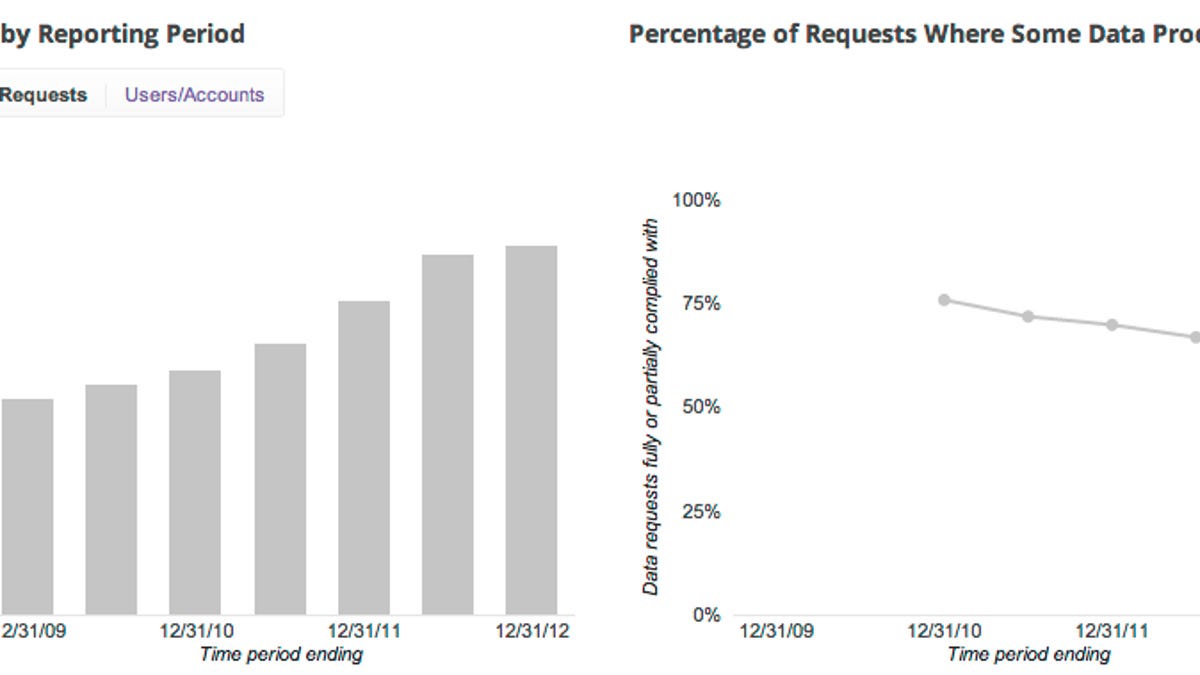U.S. leads the world in requests for users' Google data
The latest Transparency Report from Google shows requests from U.S. authorities steadily growing, plus a breakdown -- subpoena vs. search warrant, and so on.

The number of official requests Google receives for information about its users is steadily increasing -- particularly in the United States, which between July and December once again outpaced the world.
In the second half of 2012, Google received 8,438 requests for information, up 6 percent from the first half of 2012. Globally, Google received 21,389 requests for information, up 2 percent from the first half 2012. The number of requests went up even as the number of users affected went down -- a 9 percent decrease in the United States, and 3 percent globally.
The countries making the most requests in the second half of the year were:
- United States (8,438 requests for information about 14,791 users)
- India (2,431 requests for information about 4,106 users)
- France (1,693 requests for information about 2,063 users)
- Germany (1,550 requests for information about 1,944 users)
- United Kingdom (1,458 Brazil requests for information about 1,918 users)
- Brazil (1,211 requests for information about 2,526 users)
With this report, Google is beginning to break down the kinds of legal processes that governments are using when making these requests. In the period covered by the report, 68 percent of requests that Google received came from subpoenas, 22 percent came from search warrants issued through the Electronic Communications Privacy Act, and 10 percent came from other processes, such as court orders.
The full report can be found here. Unlike previous reports it does not include information about requests for content removal; the company has decided to report those separately from now on.
"We'll keep looking for more ways to inform you about government requests and how we handle them," said Richard Salgado, Google's legal director for law enforcement and information security, in a blog post. "We hope more companies and governments themselves join us in this effort by releasing similar kinds of data."

